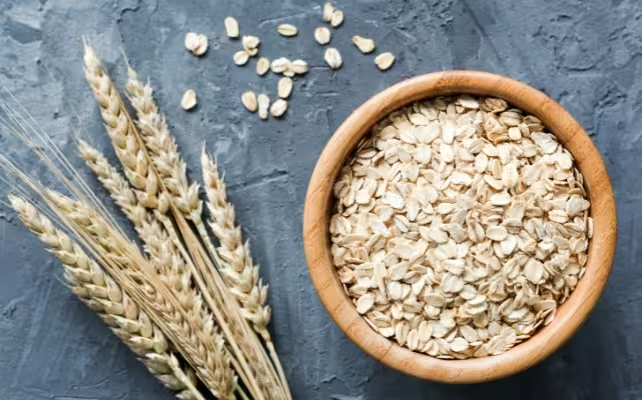5 Minutes
The Microbiome Revolution and the Rising Importance of Dietary Fiber
In recent years, scientific advances exploring the gut microbiome—the complex community of microorganisms living in our digestive tract—have transformed our understanding of nutrition and health. Dietary fiber, once overlooked, is now being recognized as a crucial component for supporting both the microbiome and overall well-being. Dubbed the "new protein," fiber is increasingly added to a wide range of foods to promote digestive health and metabolic balance. Despite this trend, new findings reveal that not all fibers are created equal when it comes to their health benefits, particularly around weight management.
Breakthrough Study: Beta-Glucan Stands Out Among Fibers
A 2024 mouse study led by researchers at the University of Arizona and the University of Vienna has shed new light on the weight loss potential of specific dietary fibers. The scientists compared several common fiber supplements—including wheat dextrin, pectin, resistant starch, and cellulose—but identified beta-glucan, found abundantly in oats and barley, as uniquely effective in reducing both body weight and fat in mice consuming a high-fat diet. Over an 18-week period, only the mice fed beta-glucan experienced significant weight and fat reductions, even though other fibers also altered the gut microbiome's composition.
"Fiber is unquestionably important for health, but the diversity of fiber types makes it unclear which best support weight loss and metabolic health," explained Frank Duca, a biomedical scientist at the University of Arizona. "Our goal was to identify the most beneficial fiber for these purposes, providing guidance for consumers, health professionals, and the food industry."

Complexities of Fiber Types: Soluble vs. Insoluble
Dietary fibers vary not just in source but also in their physical and chemical properties. Soluble fibers, such as beta-glucan from oats and wheat dextrin, dissolve in water and are rapidly fermented by gut bacteria, producing metabolites with various health effects. Insoluble fibers like cellulose and resistant starch do not dissolve in water and primarily add bulk to stool. This distinction matters: while fiber in general serves as the main energy source for gut bacteria, recent research reveals that certain soluble fibers like beta-glucan may have more pronounced positive impacts on metabolism.
Elizabeth Howard, another member of the University of Arizona research team, noted, "Until now, no study had systematically compared multiple fibers within a single cohort to directly assess their differential effects on weight and metabolic outcomes."
Beta-Glucan’s Unique Effects: Microbiome Changes and Metabolic Benefits
By feeding different fiber types to various groups of mice, the research team discovered that only beta-glucan increased intestinal levels of Ileibacterium—a bacterial genus previously linked to weight reduction in mice. Even before 10 weeks into the study, mice consuming beta-glucan demonstrated marked decreases in both body fat and weight compared to their peers.
Supporting these findings, a separate experiment by Duca provided barley flour (a beta-glucan-rich food) to rodents, where the animals lost weight and increased their energy expenditure, independent of overall calorie intake. The new study also observed elevated levels of butyrate, a beneficial short-chain fatty acid produced when gut microbes break down fiber, within the intestines of beta-glucan-fed mice.
The Role of Butyrate and GLP-1 in Appetite and Weight Regulation
Butyrate is known to stimulate the secretion of glucagon-like peptide-1 (GLP-1), a hormone that regulates appetite and insulin secretion. This is the same metabolic pathway targeted by medications such as Ozempic, a GLP-1 agonist used for treating type 2 diabetes and obesity. "Part of the health effects of dietary fiber come from increased GLP-1 production, but that's only one aspect," Duca highlighted. "Butyrate also appears to support gut barrier function and may positively influence organs like the liver beyond its effects on gut hormones."

Implications for Human Health and Future Prospects
While the latest insights come from animal models, the research underscores the need for a nuanced approach to fiber supplementation. In the United States, fewer than 5% of adults consume the recommended daily intake of fiber (25–30 grams). As a result, there’s a growing trend toward the addition of fiber to processed foods and widespread use of fiber supplements. Yet, these findings emphasize that fiber’s health benefits are not universal—formulation matters.
More research is needed to translate these results directly to humans, but early evidence suggests some fibers, especially beta-glucan, could play a role not only in supporting metabolic health and weight loss but also in improving insulin sensitivity and digestive system function.
Conclusion
The expanding field of gut microbiome and metabolic research reveals that dietary fiber is far more than just roughage; its type and source profoundly influence its health effects. The beta-glucan fiber, naturally present in oats and barley, exhibits promising weight loss and blood sugar-regulating properties in animal studies, potentially acting through mechanisms similar to the widely discussed drug Ozempic. As science continues to explore the links between specific fibers, gut microbes, and human health, individuals and food producers alike can benefit from understanding that not all fibers are equally beneficial. Future clinical trials in humans will be vital to confirm these promising findings and to refine dietary recommendations for effective metabolic and weight management.



Comments